Filter by
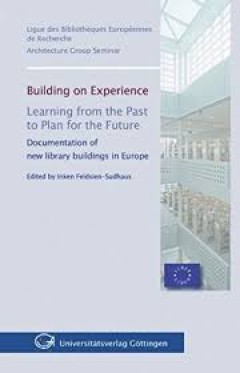
Building on experience - Learning from the past to plan for the future
The LIBER Architecture Group reflects on experience of European library building projects from the past twenty years in order to plan the next generation of library buildings. This documentation of recent library building projects accompanies the 14th Seminar of the LIBER Architecture Group, taking place in Budapest and Debrecen (Hungary) 8–12 of April 2008. Most described projects refer to s…
- Edition
- -
- ISBN/ISSN
- 9783940344267
- Collation
- 188p.: ill.
- Series Title
- -
- Call Number
- 727.8094 FEL b
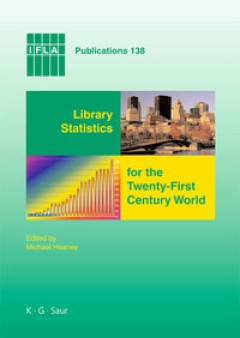
Library statistics for the twenty-first century world : proceedings of the co…
An international collaboration between IFLA, the UNESCO Institute of Statistics and the International Organization for Standardization (ISO) has developed standards for new library indicators for the twenty-first century. The existing international library statistics were developed nearly 40 years ago. This book presents the first results using the new statistics, and look forward to the next s…
- Edition
- -
- ISBN/ISSN
- 9783598441677
- Collation
- 302 p.
- Series Title
- IFLA Publications, 138
- Call Number
- 026 LIB l
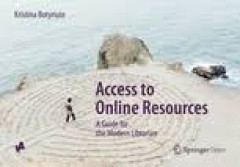
Access to online resources: a guide for the modern librarian
access management; online resources; library technology; access protocols; identity management; authentication; authorisation; troubleshooting; SAML
- Edition
- -
- ISBN/ISSN
- 9783319739908
- Collation
- -
- Series Title
- -
- Call Number
- 025 BOT a
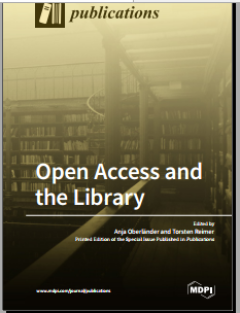
Open access and the library
Libraries are places of learning and knowledge creation. Over the last two decades, digital technology—and the changes that came with it—have accelerated this transformation to a point where evolution starts to become a revolution.The wider Open Science movement, and Open Access in particular, is one of these changes and is already having a profound impact. Under the subscription model, the…
- Edition
- -
- ISBN/ISSN
- 9783038977414
- Collation
- -
- Series Title
- -
- Call Number
- 025 OPE o
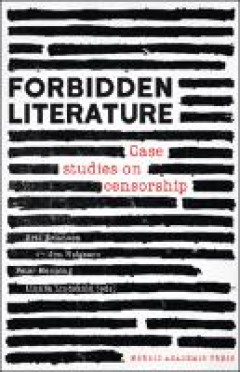
Forbidden literature: case studies on censorship
"Freedom of the printed word is a defining feature of the modern world. Yet censorship and the suppression of literature never cease, and remain topical issues even in the most liberal of democracies. Today just as in the past, advances in media technology are followed by new regulatory mechanisms. Similarly, any attempt to control cultural expression inevitably spurs fresh discussions about fr…
- Edition
- -
- ISBN/ISSN
- 9789188909084
- Collation
- 264p.: ill.
- Series Title
- -
- Call Number
- 801.9 FOR f
Continuing professional development - preparing for new roles in libraries : …
Librarians and information workers the world over are faced with the constant challenge of remaining abreast of developments in their field. Rapid changes in technology and workplace roles threaten to make their skills obsolete unless they undertake constant professional development. This international collection presents a comprehensive overview of current continuing professional development t…
- Edition
- -
- ISBN/ISSN
- 9783598440168
- Collation
- 307 p.
- Series Title
- IFLA Publications, 116
- Call Number
- 020.7155 CON c
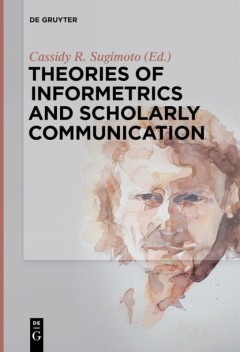
Theories of informetrics and scholarly communication
Scientometrics have become an essential element in the practice and evaluation of science and research, including both the evaluation of individuals and national assessment exercises. Yet, researchers and practitioners in this field have lacked clear theories to guide their work. As early as 1981, then doctoral student Blaise Cronin published The need for a theory of citing —a call to arms fo…
- Edition
- -
- ISBN/ISSN
- 9783110308464
- Collation
- 426 p.; 22 cm.
- Series Title
- -
- Call Number
- 020.727 THE t
Past, present and future of historical information science
This book evaluates the results of two decades of research in ‘history and computing’. In spite of the fact that a lot has been accomplished, the report indicates critical places for improvement. Many historians and other humanities scholars seem satisfied with standard office tools, which do not always suit their complex sources and research questions. While more and more archival sources …
- Edition
- -
- ISBN/ISSN
- 9069844133
- Collation
- 129p.: ill.
- Series Title
- -
- Call Number
- 020.9 BOO p
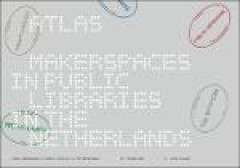
Atlas: Makerspaces in Public Libraries in The Netherlands
Public libraries want to contribute to an inclusive and innovative society and aim to enable their patrons to acquire the necessary 21st century skills. Dutch public libraries are therefore gradually adding more and more activities to their curriculum, teaching these different types of skills, such as ‘invention literacy’. They also often provide a ‘performative space’ (i.e. a makerspac…
- Edition
- -
- ISBN/ISSN
- 9789463661478
- Collation
- 162p.: ill.
- Series Title
- -
- Call Number
- 022.314 CAS a
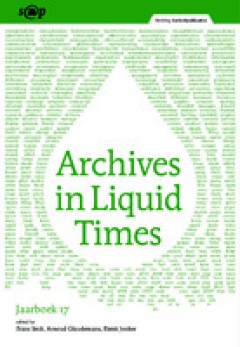
Archives in Liquid Times
Archives in Liquid Times aims to broaden and deepen the thinking about archives in today’s digital environment. It is a book that tries to fuel the debate about archives in different fields of research. It shows that in these liquid times, archives need and deserve to be considered from different angles. Archives in Liquid Times is a publication in which archival science is linked to philosop…
- Edition
- -
- ISBN/ISSN
- 9789071251450
- Collation
- XIV, 326 p.
- Series Title
- -
- Call Number
- 027 ARC a
 Computer Science, Information & General Works
Computer Science, Information & General Works  Philosophy & Psychology
Philosophy & Psychology  Religion
Religion  Social Sciences
Social Sciences  Language
Language  Pure Science
Pure Science  Applied Sciences
Applied Sciences  Art & Recreation
Art & Recreation  Literature
Literature  History & Geography
History & Geography